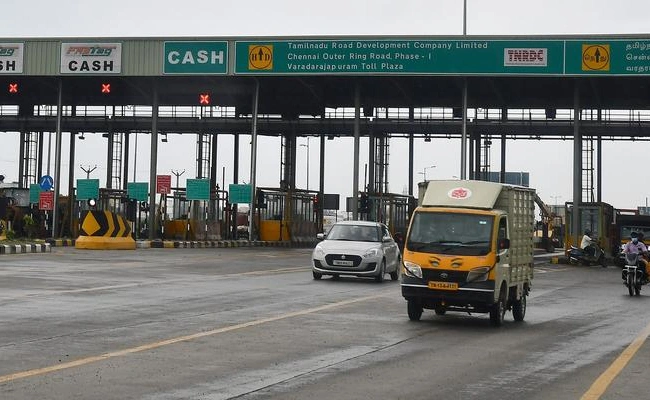
India News

The central government seems to be reaping huge benefits from toll collections on national highways. According to recent statistics, the total toll revenue collected over the past year is nearly Rs 55,000 crore, an amount comparable to the annual budget of a mid-sized state. A few years ago, toll fees were not a significant source of revenue, but now they have skyrocketed into thousands of crores. This massive sum highlights how toll collections have become a booming industry.
Currently, the era of toll roads is in full swing. Almost all newly constructed national highways rely on toll collections. Most of these roads are built under the Hybrid Annuity Model (HAM), where the government's investment is minimal. For instance, if a highway project costs Rs 2,000 crore, the central government contributes only around 10%, while private contractors invest the remaining 90%, either by securing loans or using their own funds. Despite this financial burden, contractors are competing fiercely for tenders, as the real profit lies in toll collection rights.
Once the road is built (typically in 2-3 years), the contractor gets the right to collect tolls for 20-30 years. This ensures that they recover their investment and generate substantial profits. On average, a toll gate appears every 50-60 km on national highways. For example, a private car traveling from Hyderabad to Bengaluru (a distance of about 600 km) has to pay Rs 900 to Rs 1,000 in toll fees. The toll charges for buses, trucks, and other commercial vehicles are much higher—sometimes double or even triple the amount paid by private cars. This system results in huge revenues for both the government and private investors.
New Toll Collection Proposals
Recently, the central government proposed a GPS-based toll collection system, where tolls would be charged based on the exact kilometers traveled. However, before implementing that, the government introduced a new toll pass system. Under this system:
A yearly pass costs Rs 3,000 per car, allowing unlimited travel without paying tolls.
A 15-year pass costs Rs 30,000, enabling toll-free travel for a lifetime.
This move suggests that the government may have doubts about the success of the GPS system, hence opting for prepaid toll passes. Interestingly, individual cars contribute only Rs 8,000 crore out of the total Rs 55,000 crore toll revenue. Since the majority of toll revenue comes from commercial vehicles, the government believes that offering a pass system for private vehicles will not cause any major financial loss.
Toll Roads: A Lucrative Business
Toll collection has evolved into a massive business in India. Decades ago, the government promoted slogans like "Save Oil, Save India," but such campaigns are no longer relevant. Today, fuel consumption benefits government-controlled oil companies, making it a highly profitable industry. Similarly, highways are being showcased as a symbol of development, while tolls generate massive revenues.
Ultimately, citizens bear the financial burden, while the government gains popularity and profits
Advertisment